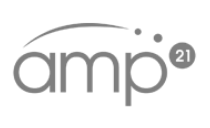Why AMP21?
Created by faculty from education, engineering, and business, AMP21 is an innovative math curriculum, designed to help students think critically and develop a problem-solution mindset, in a project-based learning environment. AMP21 blends mathematics and real-world problem contexts to improve students’ aptitudes and attitudes towards mathematics.
Real World Problems
AMP21’s innovative approach blends mathematics and real-world problem contexts to deliver an exciting new math curriculum.
Diverse Student Needs
Students from diverse backgrounds and math experiences can benefit from the real world scenarios of AMP21 problems.
College Prep
Relevant for students planning to pursue everything from business to engineering to public policy college majors.
Teachers Love It
Whether you are looking for a full course or only need few unique problems to work into your current course, AMP21 has solutions for you.

Middle School Curriculum
AMP21’s middle school math curriculum was designed to answer the question “when will I ever use this?” Using real world examples and contexts that resonate with students, AMP21 helps students develop the motivation and the mathematical reasoning skills necessary in later mathematics courses. Meant to appeal to a diverse audience, AMP21’s program helps students with percentages, an important element of the PSAT/SAT Math test.

High School Curriculum
The AMP21 high school math program focuses on mathematical modeling in algebra and probability. Flexible and adaptive to meet the needs of you and your students, it can be utilized by individual students or in a project-team based course. Currently, dozens of diverse high schools across the U.S. are using AMP21 for semester-long courses while even more teachers have used individual chapters to supplement existing course curriculum.
Kenneth R. Chelst is a professor of operations research in the Department of Industrial and Systems Engineering at Wayne State University in Detroit, Michigan where he has received more than a dozen teaching awards. He completed his Ph.D. in operations research at MIT in 1975.
Thomas G. Edwards completed his Ph.D. in mathematics education at the Ohio State University in 1994. His original area of interest was the process by which teacher’s change their instructional practices in response to current calls for reform in mathematics education.







